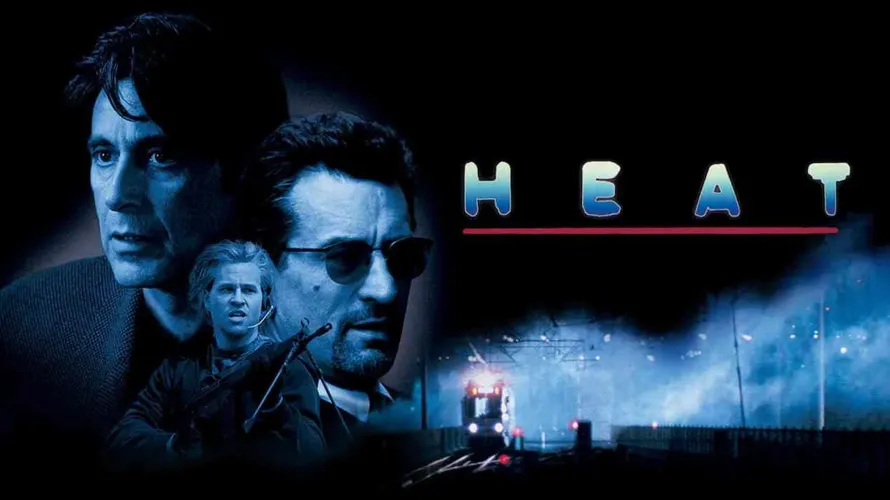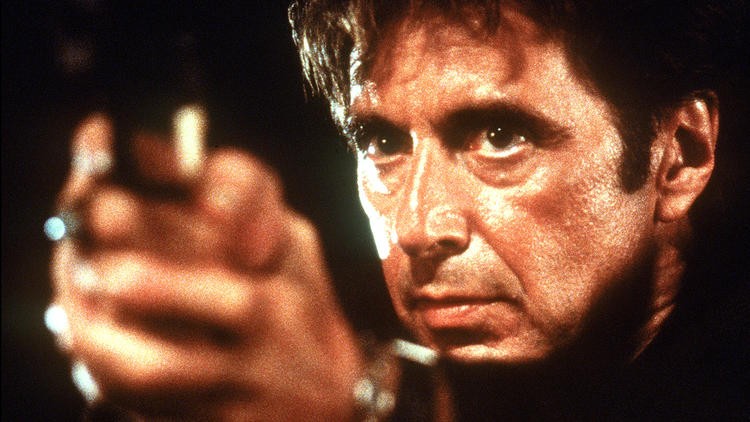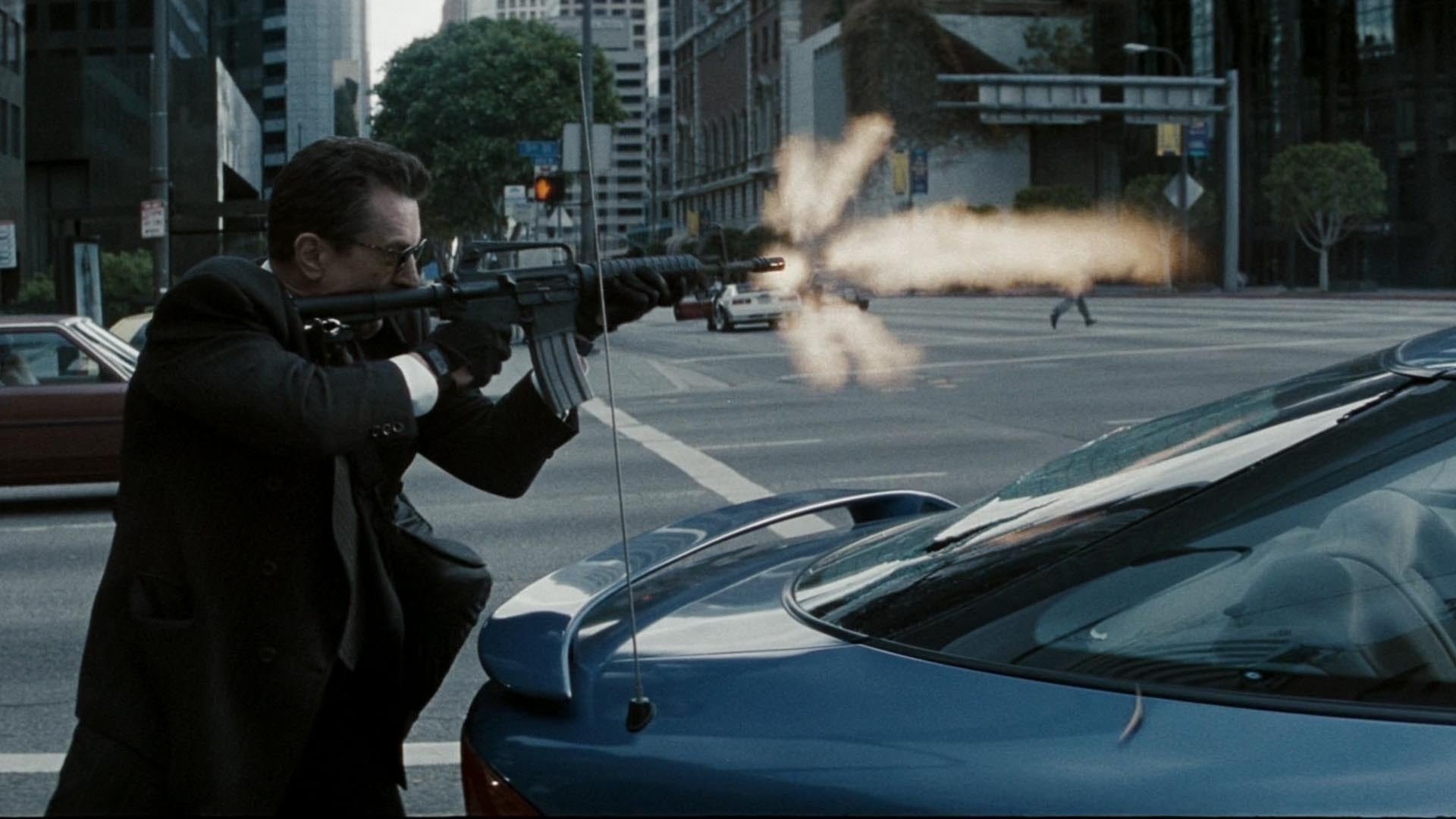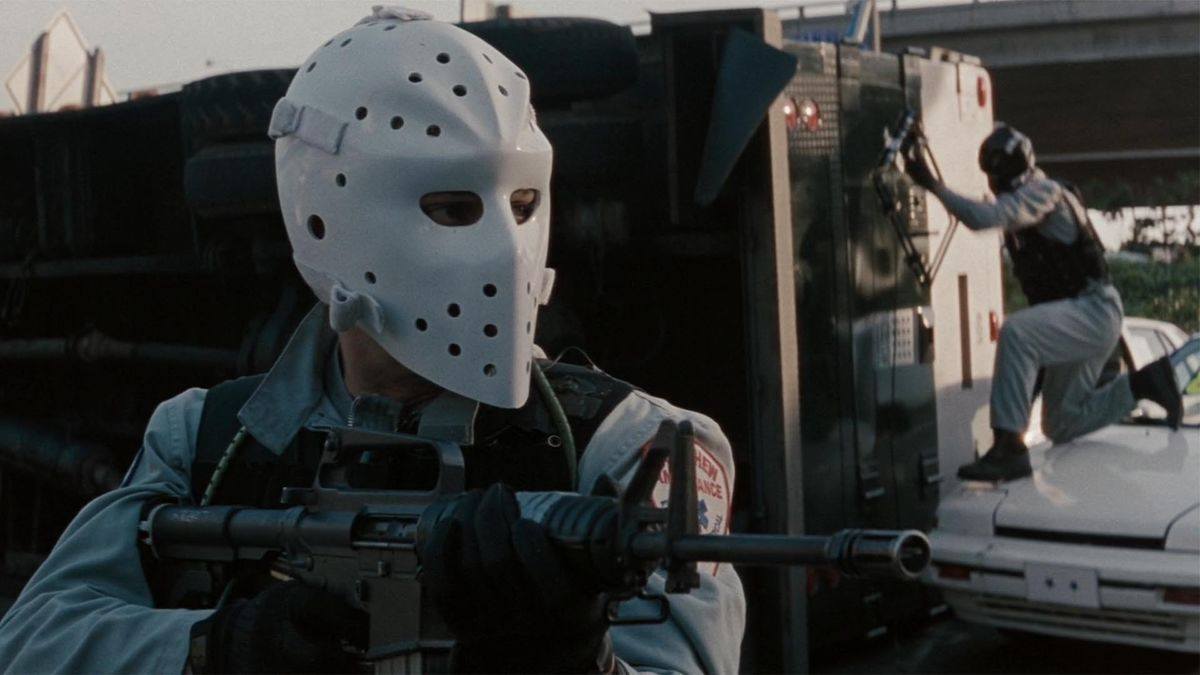Heat (1995)

Heat (1995) is a landmark American crime film directed by Michael Mann, featuring an iconic cast that includes Robert De Niro, Al Pacino, and Val Kilmer. Released on December 15, 1995, Heat explores the lives of professional criminals and law enforcement officers, focusing on their personal and professional struggles. The film is renowned for its intense action sequences, complex characters, and exploration of moral dilemmas, making it one of the most influential crime films of its time.
The plot of Heat centers around Neil McCauley (Robert De Niro), a career criminal, and Vincent Hanna (Al Pacino), a determined Los Angeles detective. McCauley leads a crew of highly skilled thieves who plan to pull off a series of high-profile heists. Meanwhile, Hanna is relentlessly pursuing them, trying to bring McCauley and his crew to justice. What makes Heat stand out is its focus on the psychological and emotional aspects of these two men. Although they are on opposite sides of the law, both McCauley and Hanna are portrayed as deeply complex individuals, struggling with their own personal issues, including their relationships and the toll their work takes on their lives.
One of the most powerful themes in Heat is the idea of obsession. Both McCauley and Hanna are consumed by their respective careers—McCauley with his desire for perfection in his criminal endeavors, and Hanna with his relentless pursuit of justice. This obsession leads to their isolation from the people around them, including their families. Their inability to balance work and personal life becomes a key source of tension in the film. This theme is epitomized in a famous scene between De Niro and Pacino, where the two characters discuss their lives and the choices they’ve made, revealing how their obsessions have defined their existences.
The dynamic between McCauley and Hanna is central to the film’s narrative. Their cat-and-mouse relationship builds throughout Heat, as each character respects the other’s abilities and is keenly aware that they are chasing a similar type of elusive goal—one defined by their relentless pursuit of success, no matter the cost. The film expertly contrasts their lives, showing how both men are driven by their passions, yet trapped in the same cycle of solitude and sacrifice. The inevitable clash between them serves as both a dramatic and philosophical climax to the story.

In addition to its compelling central conflict, Heat also shines through its supporting characters, particularly the crew of criminals McCauley leads. Val Kilmer plays Chris Shiherlis, a loyal member of McCauley’s crew who struggles with personal turmoil and the consequences of his criminal lifestyle. Other key characters include Michael Cheritto (Tom Sizemore) and Waingro (Kevin Gage), whose actions influence the events of the heists and ultimately push the narrative forward. These characters add layers of complexity to the story, demonstrating how each individual’s choices impact the larger narrative and the dynamics of the criminal world.

Visually, Heat is a masterpiece of modern filmmaking. The cinematography, crafted by Dante Spinotti, captures the vast and impersonal cityscape of Los Angeles, which serves as a backdrop for the characters’ lives. The film’s many action sequences, including the legendary bank heist scene, are meticulously executed, showcasing Michael Mann’s precise direction and attention to detail. The tension in the film is palpable, with each action scene building the stakes while maintaining a sense of realism and grounded emotion. The film’s pacing and mood are also enhanced by a powerful score composed by Elliot Goldenthal, which complements the film’s dark and atmospheric tone.

Ultimately, Heat is not just a thrilling crime drama but a meditation on human nature, ambition, and the choices that shape our lives. The film’s exploration of the moral ambiguity of both law enforcement and criminals challenges the viewer to reflect on the costs of obsession, loyalty, and sacrifice. With its strong performances, intricate character development, and intense action sequences, Heat remains a defining film in the crime genre and a timeless piece of cinematic storytelling.











